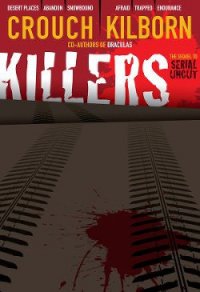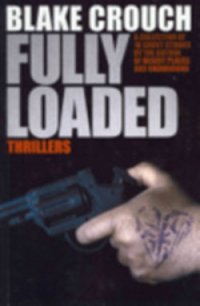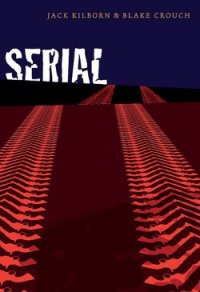Mud Vein - Fisher Tarryn (онлайн книги бесплатно полные TXT) 📗
I look at his face. His dark eyes look bleary like he’s coming down from a high—except he doesn’t take drugs. Not even for a headache. I know a lot about this man. That’s what’s shocking me the most. Why am I here? Why am I here with him?
His head swivels to look at me. It’s as if he’s really seeing me for the first time. I can see the up and down movement of his chest as he struggles for breath. This was me, fifteen minutes ago. His eyes search my face, before he says, “What do you remember?”
I shake my head. “I had dinner in Seattle. I left around ten. I stopped for gas on my way home. That’s it. You?”
He stares at the ground, his brows drawn together. “I was at the hospital, just leaving my shift. The sun had just come up. I remember stopping to look at it. Then nothing.”
“This doesn’t make sense. Why would someone bring the two of us here?”
I think about the lighters and the key and the carousel room, and then I push it from my brain. A coincidence. But I want to laugh even as I think it.
“I don’t know,” Isaac says. I don’t think I’ve ever heard him say that. I think about all the times in my life I’ve counted on him for answers—demanded answers—and he always has them.
But that was then…
He runs his hand over the stubble on his jaw, and I notice the deep purple bruises on his wrists where his bindings dug into his skin. How long had he been tied up like that? How long had I been unconscious?
“We need to get warm,” Isaac says.
“I made a fire … in the room up the ladder.”
We search for the thermostat. I notice how white his knuckles are around the handle of the knife. We find it in the carousel room, behind the door. He turns on the heat.
“If there is power, we must be close to something,” I say hopefully. He shakes his head.
“Not necessarily. It could be a generator. This might not last.”
I nod, but I don’t believe him.
We climb up to the round room to sit by the fire and wait for the house to heat. He makes me go first. Once I am up, he glances over his shoulder one last time and then quickly climbs up to join me. We close the trapdoor and lock it. We try to scoot the armoire over it, but that’s bolted too. The fire I built is puttering out. There are three extra logs. I reach for one and place it on the flames while Isaac takes a look around.
“Where do you think we are?” I ask when he comes to sit on the floor next to me. He sets the knife down between us. This makes me feel better. I don’t trust anything yet. If he’s not hiding his weapons from me, that’s a good thing.
“This much snow? Who knows? We could be anywhere.”
We are nowhere, I think.
“How did you get out of your bindings?”
“What?” I don’t understand what he’s saying, then I realize that he thinks I was tied up too.
“I didn’t have any,” I say.
He turns his head to look at me. We are so close the vapors of our breath are mingling mid-air. He has dark stubble on his face. I want to rub my palm across it just so I can feel something sharp and real.
His eyes, always intense, are two dark thinking pools. He hardly ever blinks. It unnerved me in the beginning when I first met him, but after a while I grew to appreciate it. It was like he was afraid to miss something. His patients, who also noticed it, used to say they appreciated his lack of blinking in surgery.
You know Doctor Asterholder is never going to nick a vein, was the running joke in the hospital.
Why wasn’t I gagged and blindfolded, with my arms tied to the posts of my bed?
“So you could free me,” he says, reading my thoughts.
A chill runs up my spine.
“Isaac, I’m afraid.”
He shifts closer, puts an arm around my shoulders. “Me too.”
Chapter Four
When the house is warmer and our limbs feel like they can move again, we unlock the trap door and go downstairs. We sit facing each other at the table in the kitchen. Our eyes have the glazed vacant look of two people in shock. Though I have no doubt we’d spring, quick as cats, if we needed to. I touch the handle of my knife. Both Isaac and I have set our knives on the table in front of us; the knives are pointed in a face off. He doesn’t have to say anything for me to know that there is suspicion on his face. I wear it too. We look silly; abducted and locked in a house, waiting for whoever did this to return.
“Ransom,” I say. My voice is raspy. It catches in my throat before I can say anything else. I swallow and look up at Isaac.
His eyes dart to the corners of the room. His leg is bouncing up and down, I can feel the vibrations of it in the wood. Every few minutes his eyes move to the window, then back to the door.
“Maybe…”
I catch the pause after maybe. He wants to say more, but he doesn’t trust me. And if I were to really examine my theory it would most likely fall apart. Kidnappings made for ransom were fast and messy; guns pointed at your head, urgent demands. Not keypads on the door and enough food to last through one of George R.R. Martin’s long winters. I lay my hands flat on the table, fingertips pointing inward, and rest my chin over them. My pinkie is touching the handle of my knife.
We wait.
The cabin is so eerily silent we would hear a car or person approaching from a mile away, but we keep checking anyway. Waiting … waiting. Finally, Isaac gets up. I hear him walking from room to room. I wonder if he is looking for something or if he just needs to move. I realize it’s probably the latter. He can’t sit still when he’s nervous. When he comes back in the kitchen, I break the silence.
“What if they’re not coming back?”
He doesn’t answer me for the longest time.
“There is a pantry, there—” he nods toward a narrow door to the left of the table. “It’s stocked with enough food to last for months. There is a fifty-pound bag of flour. But the wood closet only has enough wood to last a few weeks. Four at most if we ration it.”
I don’t want to think about the gargantuan bag of flour, so I pretend I didn’t hear him. The wood, however, bothers me. I’d rather not freeze to death. There are plenty of trees outside. If we could get outside, that is. We’d have wood.
“The carousel room,” he says. “Do you find it strange?” His voice is clear, precise. It’s the one he uses with his patients. I’m not one of his patients and I don’t appreciate being spoken to like one.
“Yes,” I say simply.
“The book?” His voice moves to gruff. “There was nothing in there about the carousel, was there?”
“No,” I say. “There wasn’t”
There didn’t need to be.
“Do you think this could be one of your fans? Someone obsessed?”
I don’t want to think about that, but it has already crossed my mind. I didn’t want to be the one responsible for this.
“It’s possible,” I say cautiously. “But that doesn’t explain you.”
“Have you been getting any threats, strange letters?”
“No, Isaac.”
He looks up when I say his name.
“Senna, you need to think carefully. This could make a difference.”
“I have!” I snap. “There have been no letters out of the norm, no e-mails. Nothing!”
He nods, walks to the fridge.
“What are you doing?” I ask, spinning in my seat to watch him.
“Making us something to eat.”
“I’m not hungry,” I say quickly.
“We don’t know how long we’ve been out. You need to eat and drink something or you’ll dehydrate.”
He starts taking things out of the fridge and putting them on the counter. He finds a glass, fills it with water from the faucet, and brings it to me. It’s a funny color.
I take it. How can I eat or drink at a time like this? I force the water down because he’s standing in front of me, waiting.




